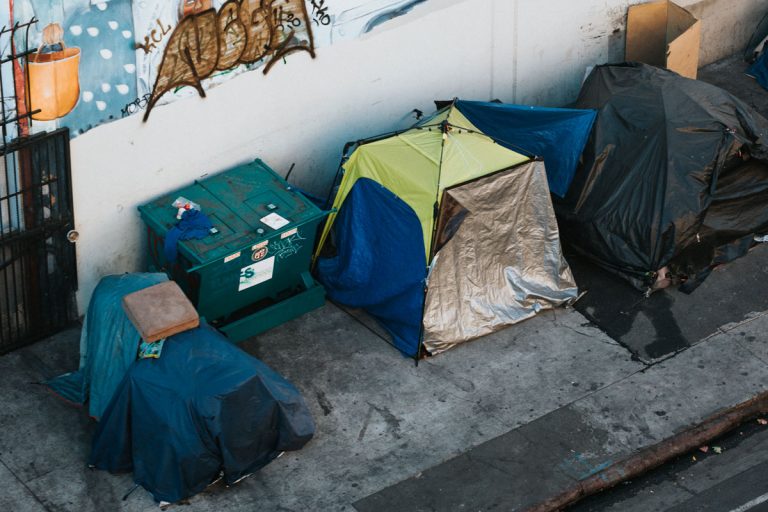Foreign rough-sleepers could be deported from the UK

“The Home Office has talked of becoming a more ‘fair, humane and compassionate’ department. Immediately scrapping this cruel rule on rough sleeping would be a good place to start.” This is how Amnesty International UK’s director Kate Allen has condemned powers within new immigration rules, which took effect on 1 December and establish that non-UK nationals who are rough sleeping could face deportation beginning 1 January, 2021.
According to Section 4 of the Statement of Changes in Immigration Rules, published by the Home Office in October, any permission held by someone to stay in the country may be cancelled where the decision-maker is satisfied that the specific person has been rough sleeping in the UK.
To make things even worse, such changes have been introduced amid the coronavirus pandemic, as temperatures plunge towards zero and people are at greater risk of infection from the virus. Furthermore, the legislation has come into force even before the end of the Brexit transition period.
Soon after the publication of the official document on the government website, the Mayor of London Sadiq Khan urged ministers to rethink their decision: “The injustice and cruelty exhibited by the proposed new immigration laws is a chilling reminder of how the most vulnerable people in our society can be targeted when those in power don’t believe anyone will notice or care. It is not too late for the Government to act and show some compassion that is desperately needed in these difficult times.”
In a letter addressed to Home Secretary Priti Patel and Housing Minister Robert Jenrick and signed by 27 representatives of local authorities and London-based charities, Khan criticised the new legislation, which is likely to deter already vulnerable people from seeking help in rebuilding their lives.
Among the signatories to the letter, Crisis, Housing Justice and Migrants’ Rights Network, who pointed out that the measures taken so far this year by City Hall, charities and councils have resulted in very low COVID-19 infection rates among rough sleepers in the capital. Without additional measures that allow all those unable to self-isolate, including non-UK nationals, to access adequate support, COVID-19 infection rates among people without a roof over their head could soar and subsequently spread to the wider community.
Moreover, people who sleep rough have often been forced onto the streets to flee exploitation, and the new immigration law could prevent them from approaching the authorities for help. Unscrupulous bosses may even use the threat of potential deportation to further exploit workers. Meanwhile, those who were already homeless could feel pressured to accept unfair work just to avoid sleeping on the streets. In some cases, people end up on the street because of errors in the Home Office’s decision-making process.
The five key proposals contained in the letter to tackle the coming crisis include a request to suspend all immigration-based exclusions from welfare and homelessness assistance to adapt to these exceptional times, as well as extending the deadline to apply for settled status to prevent Europeans living in the UK from becoming undocumented. Also on the list, is a request to adequately fund self-contained, COVID-secure accommodation to protect those who are houseless.
Online campaigning organisation 38 Degrees is urging the general public to sign a number of petitions to defy the new law by making sure all main cities in the UK commit to not sharing sensitive personal data of rough sleepers with the Home Office to prevent deportations.
“Many people who moved to the UK have worked and raised families here, but when they fall on hard times their immigration status means they have ‘no recourse to public funds’ and are unable to access the support they need to keep a roof over their head,” reads the text of the petition.
So far nine London boroughs, including Islington, Lambeth and Newham, have decided to push back against the new rules.
Across the UK, there were over 4,600 people sleeping rough on a single night in autumn 2018, according to the Office for National Statistics. The figure was down 2 per cent from the 2017 peak, but it went up 165 per cent since 2010. The demographics suggest that 25 per cent were foreigners, 84 per cent were identified as male and 80 per cent of the total were over 26 years old.
This article has been published as part of an ongoing content partnership with FAIRPLANET.




